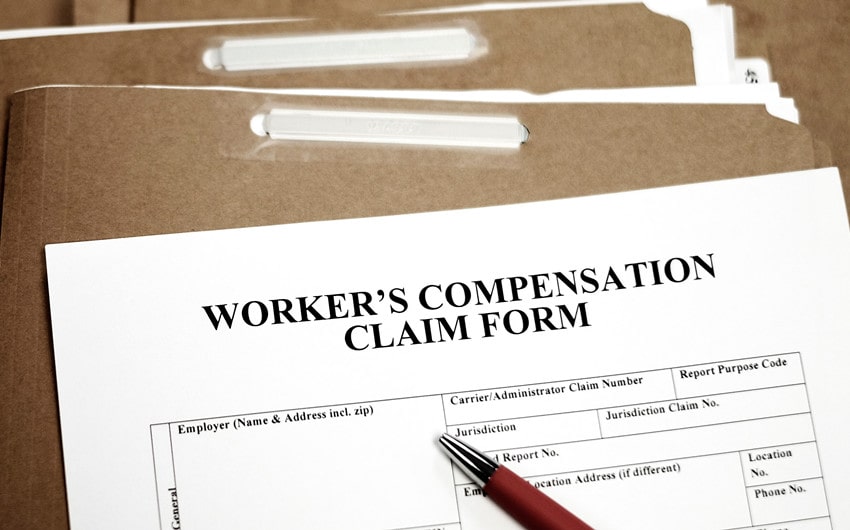Common Mistakes That Can Ruin Your Workers’ Compensation Claim
Navigating a workers’ compensation claim can be challenging, especially when you’re dealing with the aftermath of an injury. Even a small mistake can jeopardize your chances of receiving the benefits you deserve. Knowing what errors to avoid can help you protect your claim and ensure you receive the compensation you need to recover. Here’s a look at some common mistakes that can ruin your workers’ compensation claim and how to avoid them.
1. Failing to Report the Injury Immediately
One of the most critical steps after a workplace injury is reporting it to your employer right away. Many employees delay reporting because they think the injury isn’t severe or hope it will improve on its own. However, even minor injuries can become serious over time, and failing to report them promptly can lead to major issues with your claim.
Most states have specific time limits for reporting workplace injuries, often within a few days of the incident. Missing this window could mean losing your right to benefits altogether. Always report the injury as soon as it happens, no matter how minor it seems.
2. Not Seeking Medical Attention Right Away
After an injury, seeking immediate medical care is essential—not only for your health but also for your claim. Delaying medical treatment can give the impression that your injury isn’t serious or wasn’t caused by your job. It’s crucial to see a healthcare provider promptly, document the injury, and follow their advice.
Make sure to inform the doctor that your injury occurred at work so that this information is included in your medical records. Consistent and accurate medical documentation is key to validating your claim.
3. Providing Inconsistent or Incomplete Information
Accurate and consistent information is the backbone of a successful workers’ compensation claim. When speaking with doctors, your employer, or the insurance company, it’s vital to provide a clear and consistent account of how your injury happened. Inconsistencies between your statements, medical records, and reports can raise red flags, causing your claim to be denied. Be honest and thorough when describing your injury, and avoid exaggerations or omissions that could undermine your credibility.
4. Missing Deadlines
The workers’ compensation process is full of deadlines that must be met, from filing initial reports to submitting medical documentation. Missing any of these deadlines can seriously impact your claim. Each state has its own set of rules and time limits, which can vary widely. Failing to adhere to these timelines can result in your claim being denied, no matter how legitimate it is. Stay on top of all deadlines and ensure you complete and submit all necessary paperwork on time.
5. Not Following Doctor’s Orders
Following your doctor’s recommendations is crucial to both your recovery and your workers’ compensation claim. Ignoring medical advice, skipping appointments, or failing to take prescribed treatments can suggest that your injury isn’t as serious as you claim. The insurance company may use this as grounds to reduce or deny your benefits. To protect your claim, follow all medical advice closely, keep up with your appointments, and document your progress as you heal.
6. Handling the Claim Without Legal Assistance
Navigating a workers’ compensation claim can be complicated, especially when dealing with uncooperative employers or insurance companies. Many employees attempt to handle their claims alone, only to find themselves overwhelmed by the legal complexities.
Consulting a workers compensation lawyer can be invaluable, particularly if your claim is disputed or denied. A lawyer can help you understand your rights, negotiate with insurers, and guide you through the entire process to ensure you receive the compensation you deserve.
7. Returning to Work Too Soon
Returning to work before you are fully recovered can not only jeopardize your health but also your claim. Employers and insurance companies may pressure you to return early to avoid paying out benefits. However, going back to work before you’re ready can aggravate your injury and prolong your recovery. Follow your doctor’s advice regarding when it’s safe to return to work. If you’re unsure, get a second opinion before making any decisions.
8. Sharing Too Much on Social Media
Social media can be a minefield during a workers’ compensation claim. Insurance companies and employers often monitor claimants’ social media profiles for any evidence that could be used to discredit their claims.
Even innocent posts, like a photo of you enjoying time with friends, could be misconstrued as evidence that you’re not as injured as you claim. During your claim, it’s best to avoid posting anything about your injury, activities, or overall condition. Keep your profiles private, and be mindful of what others tag you in as well.
Conclusion
Avoiding these common mistakes can make a significant difference in the outcome of your workers’ compensation claim. Reporting your injury promptly, seeking medical care, following your doctor’s advice, and considering legal guidance can all help protect your right to compensation. By being proactive and mindful of your actions, you can navigate the claims process more confidently and secure the benefits you need to recover.







